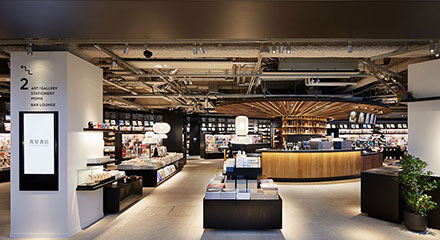[Interview] Kenji Uemoto's stamp of approval: "Lightwood Chair"
Manager Uemoto of Maruni Wood Industry. He is a stylish and warm person, and has many fans among the staff at T-SITE. Quality items that can be used for a long time. What is the philosophy behind Maruni Wood Industry's manufacturing that is embodied in these items? And what are the feelings that are passed down through these items? This interview conveyed Uemoto's sincerity.
How your favorite chair can change your life
I have been the manager of HIROSHIMA T-SITE since it opened in 2017. I also serve as the sales manager for Western Japan. I listen to the feelings of each and every customer and make them enjoy choosing furniture. The premise of a Maruni chair is that you can use it for 10 or 20 years if you buy it once. It's not something you replace as soon as you get tired of it. I tell my customers that there is a joy in growing old with it and letting it age. I tell them that the relationship between people and objects allows you to see the future 10 or 20 years from now, and that there is a joy in using objects while thinking about the future, and I tell them why not choose a chair that fits into your lifestyle. This will change your perspective, and of course you will care about the price, wood, and color, but more than that, the most important thing is whether you like it yourself. I make it a priority to convey that to them and make them enjoy shopping.
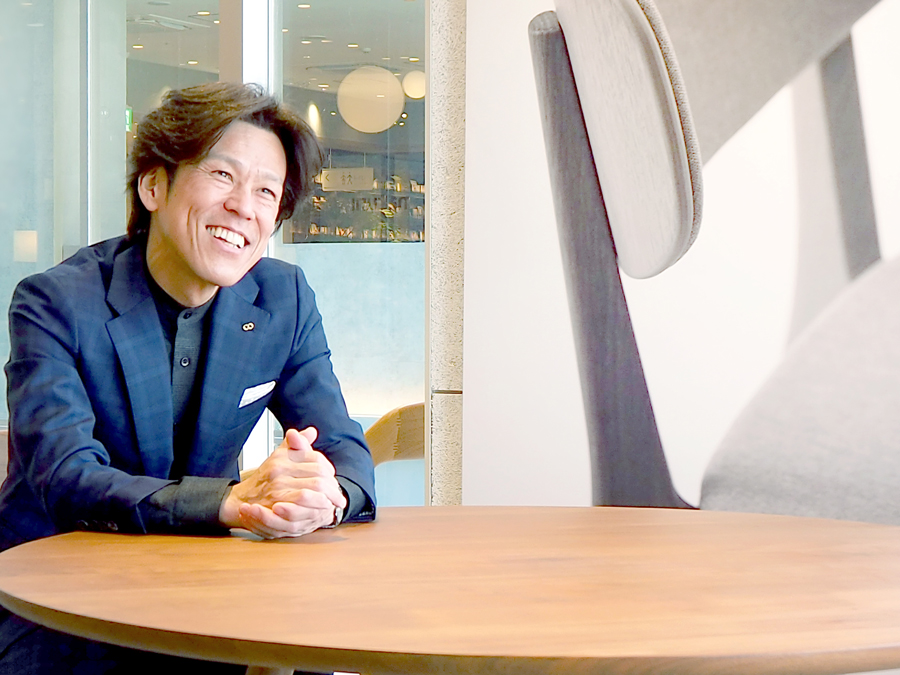
I think that having a favorite chair or furniture makes you live a more careful life. If you have a comfortable chair or a well-designed chair, you want to clean up the area around it, and you look forward to spending time at home when you get home. It's nice to have that feeling, like your life is in order. I think it's a fulfilling time to sit in your favorite chair and listen to music if you like music, or read a book if you like books. When I have my favorite furniture, I try to get the tableware and other things I like, so my life feels better. Next, it's fun to think about what kind of lighting to use.
Something you can use for a long time with love
What led you to join the company? It's a long story. When I was a university student, I was working part-time at a cafe bar. The owner decided to open a new store, and he sent me a lot of furniture catalogs to choose the interior. When we were looking through them as a group of staff, one of them was a Marni catalog. The infinity logo made a big impression on me.

So when I was job hunting, I felt that the food and beverage industry where I had been working part-time was different. When I was requesting information, I saw that infinity logo. That's what made me think that interior design might be good. At that time, they had a showroom in Nihonbashi, Osaka, so I went over and asked to see their products. At that time, I asked where the best sales floor in Osaka was. I was told it was a department store in Umeda, so I went and saw that it was a really wonderful sales floor with glass walls. I decided to work at Maruni Wood Industry.
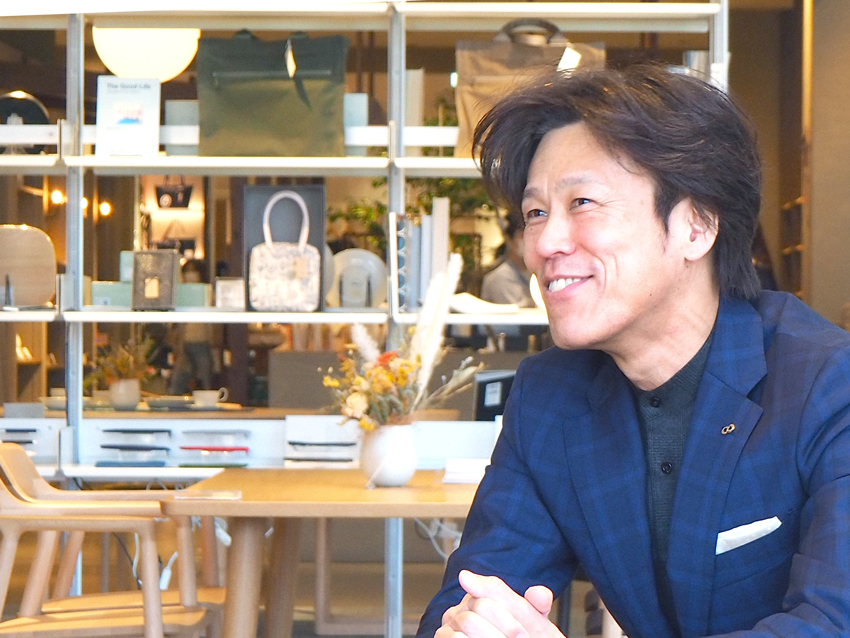
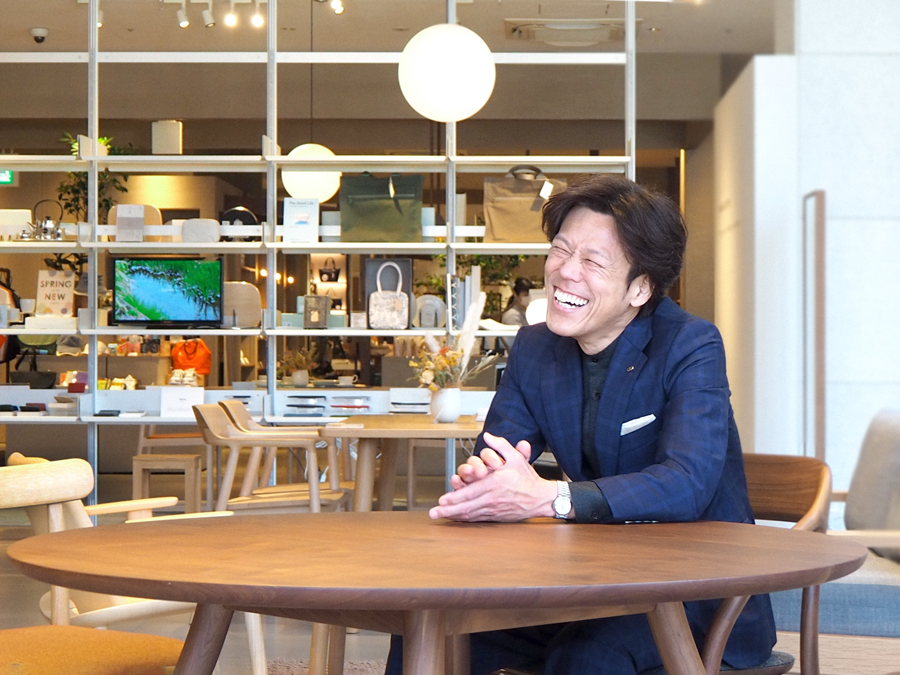
Actually, I wasn't originally interested in interior design, but I was the type of person who was attached to the tools I used. I smoked at the time, so I took good care of my lighters and ashtrays and used them with care. I quit smoking, but I still treasure my lighters. I'm interested in things that people can use for a long time and with love, and I think that's one of the reasons I chose this company.
I still remember the words from a client
I still remember the words from a client
The Next Maruni project was a turning point for me too. It was around 2005. The current president, Hiroshi Yamanaka, was the head of the new business development department, and I was the head of the department in charge of department stores in Tokyo. Next Maruni was a project to incorporate Japanese aesthetics into chairs and present them in Milan, and we had 12 architects and designers active around the world compete to design chairs.
The taste is quite different from the classic line of Marni up until then. Therefore, we not only did business with existing customers, but also did a lot of new business. The response from the sales was very good. Our existing customers were also really supportive. A department store in Tokyo said that we could use all of their event space for NextMaruni. We also lined up miniature NextMaruni chairs in the basement window. We did everything we could, but to be honest, sales were tough. At that time, a female leader who had been in the furniture field told me that she knew from the beginning that we wouldn't sell. However, she said that there was no other furniture manufacturer in Japan that was doing such an initiative, so she wanted to support us, as if it was a sense of mission. This experience made me realize that we need to truly value our customers and do what we can to contribute to the world.
When nextmaruni was released, it was very well received and was featured in various magazines, but in the end, although it would be strange to say that furniture doesn't sell because of buzz, I really learned that if you make something that doesn't consider the customer's perspective, such as comfort, or the situations in which they want it to be used, or if you can't imagine the scene in which it will be used, it won't sell.
Naoto Fukasawa, the artistic director of the Marni Collection, comes to see our technology and factories, and designs after seeing what our company can do. In Fukasawa's words, "The power of cutting, the precision of the craftsmen's hands who finish the piece, and the technical ability to bring out the charm of the soul of wood inevitably represent Marni. Products produced by Marni must have that charm." I think Marni's strength is that everyone from those involved in production to sales has the same perspective. That is the HIROSHIMA Armchair.(※)I think that's what led to the success of the project.
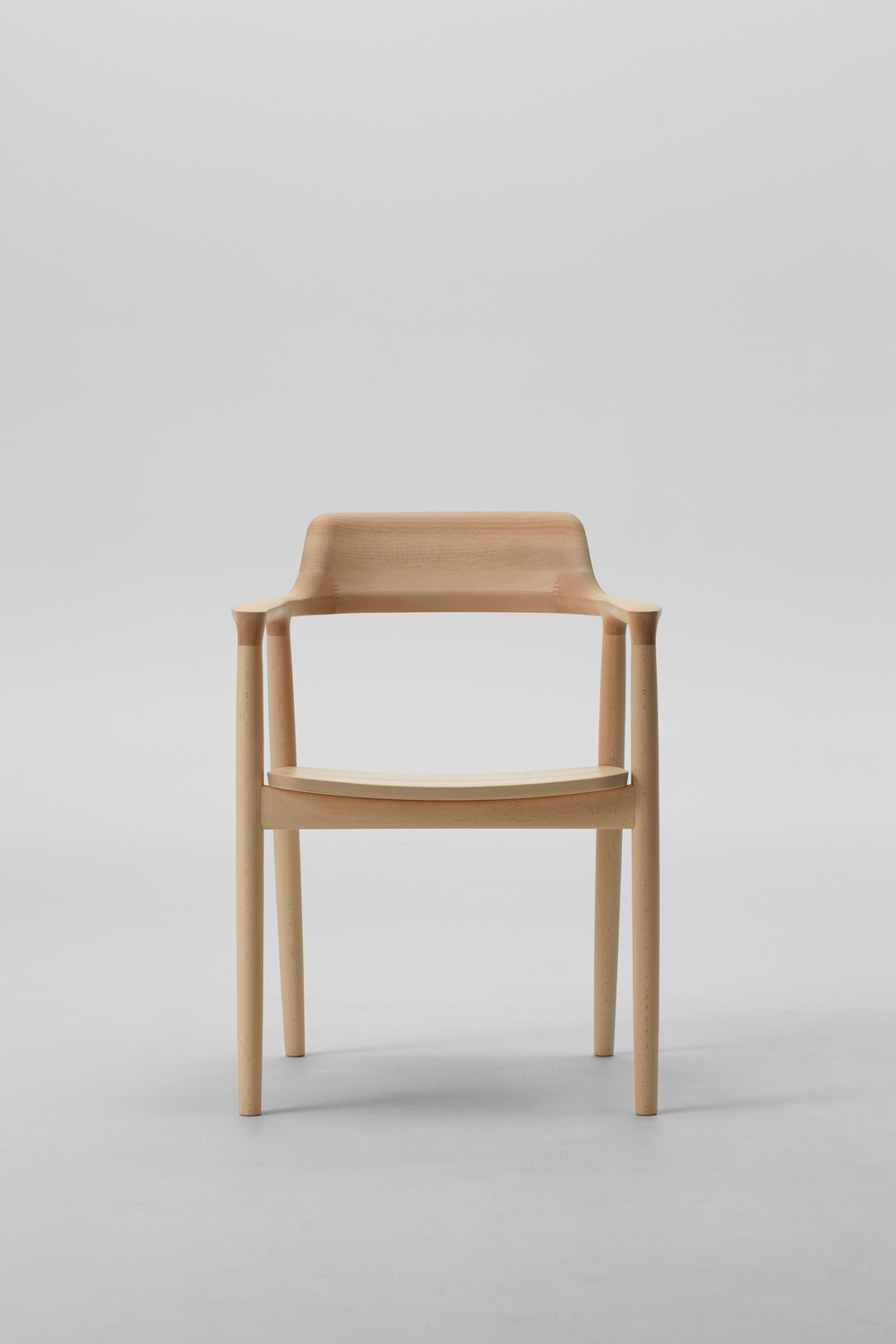
(*) A series of armchairs designed by Naoto Fukasawa and released in 2008. Several thousand of these chairs are used at Apple's headquarters.
A gift for a daughter.
The chair I highly recommend is the Lightwood chair by Maruni Wood Industry. It was designed by Jasper Morrison. It has a simple design that harmonizes softness and sharpness, yet gives off a warm impression. As the name suggests, it is very lightweight and easy to use, and it also gives off a visually light impression. The gently shaped backrest provides just the right amount of support for the back of the person sitting on it, and it is very comfortable to sit on.
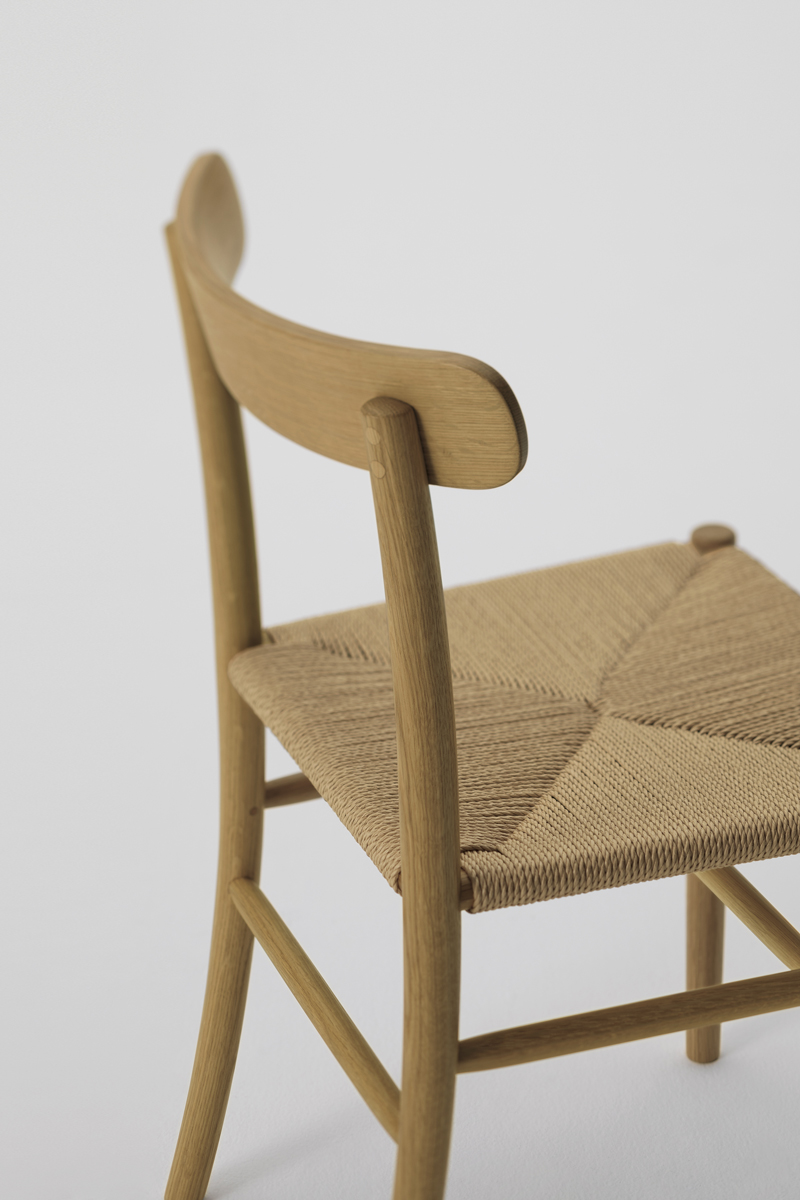
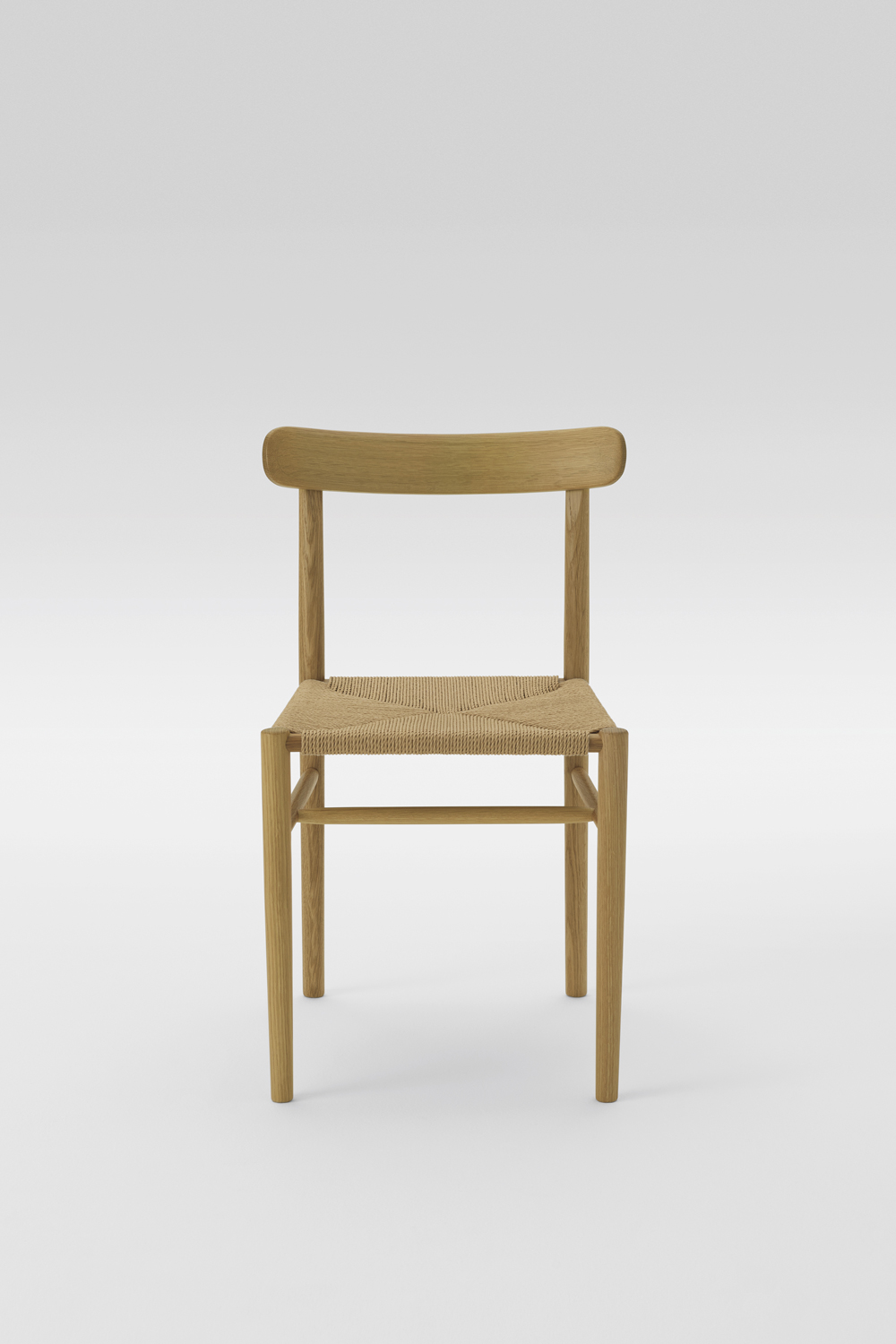
I was planning to give this chair as a gift to my daughter, and for now I'm using it at home while I'm away from home.
When I was young, I followed what my seniors and parents did, but as I got older, I realized a lot of things. In the same way, my daughter doesn't have to understand my feelings now. I would be happy if she would realize them in the future. I think that when my daughter has a child or has a special person, she will understand me someday. I hope that she will understand the feelings I have for the things I choose, and that our feelings will be connected through the chair.
When I was young, I followed what my seniors and parents did, but as I got older, I realized a lot of things. In the same way, my daughter doesn't have to understand my feelings now. I would be happy if she would realize them in the future. I think that when my daughter has a child or has a special person, she will understand me someday. I hope that she will understand the feelings I have for the things I choose, and that our feelings will be connected through the chair.
This Lightwood chair will be unveiled at this year's Milan Salone with a new paper cord seat. The nearly 120 meters of paper cord is tightly woven by a craftsman over about three hours. The unwavering craftsmanship of the woodworking technique combines high design and strength.
The warm seat, made by hand, harmonizes with the "chair that will be passed down" and is truly a masterpiece!
The warm seat, made by hand, harmonizes with the "chair that will be passed down" and is truly a masterpiece!
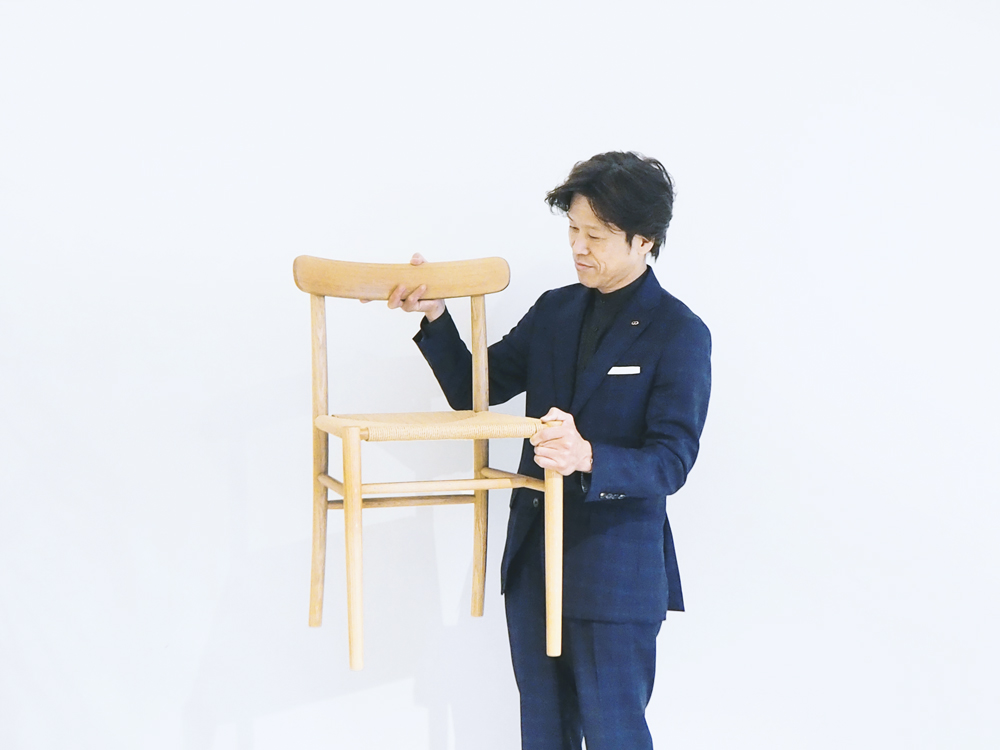
Kenji Uemoto
Maruni Wood Industry Co., Ltd. Sales Headquarters, West Japan Sales Department Manager
Born in Osaka Prefecture in 1971. After graduating from university, he joined Maruni Woodworks in 1993. After joining the company, he was assigned to the sales department. He engaged in sales activities at each of the company's bases in Hiroshima, Fukuoka, Aichi, Tokyo, and Osaka, strengthening relationships with major companies and learning the true essence of business. He has been in his current position since April 2019. He was active in sports such as basketball and rugby during his school days, and even now he exercises on his days off. He refreshes himself by watching movies and sports on his days off. His motto is "Forge ahead with courage." He likes to live life moving forward in a straight line toward the things he has decided and his dreams.
Composition: Ushiban Shinji





